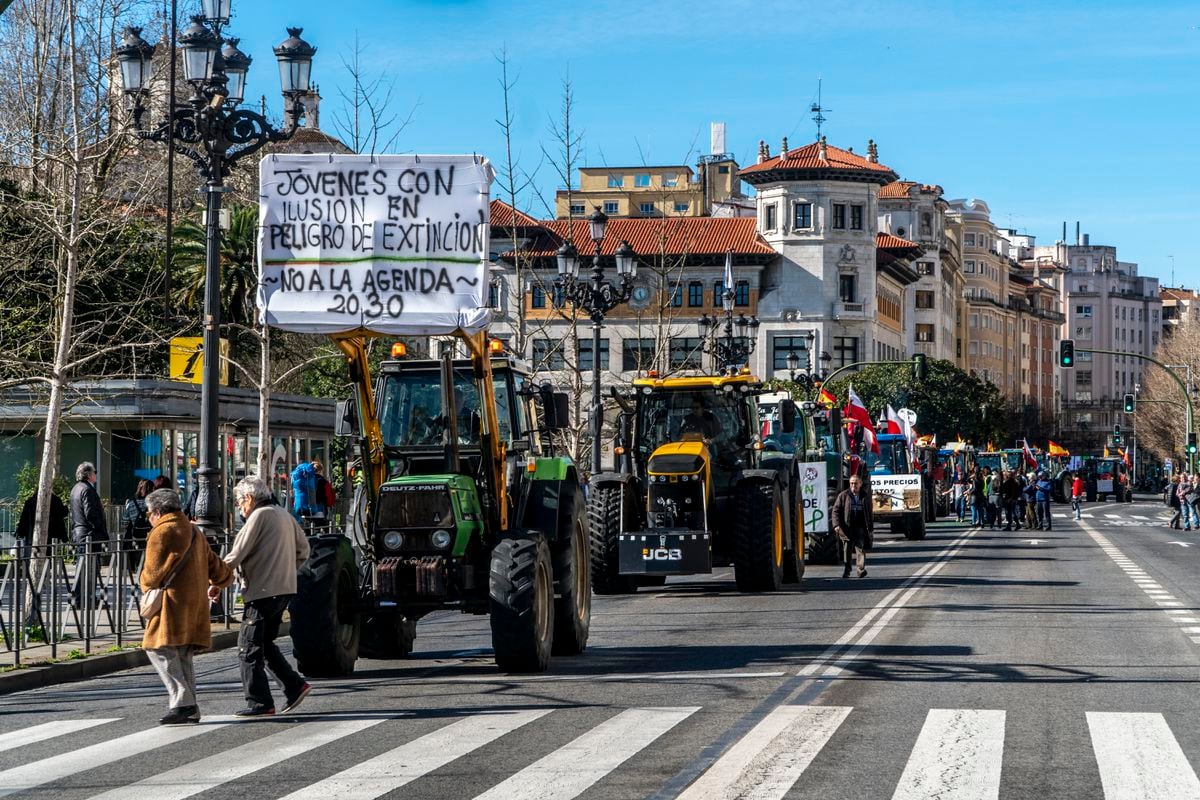Capitalism, inequality and bureaucracy | Economy

One of the most frequent complaints in farmer protests refers to the excessive paperwork and bureaucracy created by European authorities. Censorship may be correct in many cases. However, the administration of public support is logically subject to strict controls. Another question is whether verification tasks should fall to farmers or could be carried out by departments, which would…
Subscribe to continue reading
Read without limits
One of the most frequent complaints in farmer protests refers to the excessive paperwork and bureaucracy created by European authorities. Censorship may be correct in many cases. However, the management of public support is logically subject to strict controls. Another question is whether verification tasks should fall to farmers or could be carried out by departments, which would lead to more bureaucracy.
A study by Professor Jan Brewe of the Berlin University of Applied Sciences (HTW) shows how fairer and more equal systems also behave in a more bureaucratic way. This is a valuable comparison between two models of capitalism that shows the limited role of GDP per capita in the living conditions of the majority of the population, emphasizing the influence of institutions and the type of welfare state. The study, which analyzes 15 different areas, with data from 2022, concludes that Germany obtains a clearly better result with 23 points, compared to the United States, which obtains only six points. The article was published by the Institute for Macroeconomic Policy (IMK) under the title “Comparing living and working conditions – Germany outperforms the United States.”
In five areas (work-life balance, environment, health, safety and gender issues), Germany, which can be considered a reference for the average European social model between the more generous and more limited Scandinavian countries to the south, shows a clear superiority. . One major difference between the two countries is workers' shorter annual working time: 1,341 hours in Germany, compared to 1,811 hours in the United States.
The greater economic potential of the United States, with a per capita GDP of 58% (23% higher in purchasing power parity) than Germany, has little effect on improving the living conditions of Americans. The study focuses its reflections on the strong inequality in American society, measured by income and wealth, between the rich and the poor. He notes that “excessive wealth tends to disintegrate society” and “promote growth to the benefit of the rich.”
Despite the apparent efficiency of the German social welfare model, the extensive social safety net also suffers from many shortcomings associated with legal and bureaucratic complexities. However, the author warns that if Germany develops further in the direction of liberal capitalism, it “will lose much in its advance against the United States.” In his opinion, the reason for this strong discrepancy between living and working conditions on the one hand, and the per capita GDP on the other hand, “is due to the distribution of income and wealth, you idiot!” If farmers become poorer and marketing companies double their profits, the bigger problem may be distribution rather than European bureaucracy.
Follow all information Economy And a job in Facebook And sor in our Weekly newsletter
Five-day agenda
The most important economic quotes of the day, with keys and context to understand their scope.
Get it in your email

“Award-winning zombie scholar. Music practitioner. Food expert. Troublemaker.”










:quality(75)/cloudfront-us-east-1.images.arcpublishing.com/elcomercio/6YSLLNMRZBFTNN33C4P4KY2DFA.jpg)